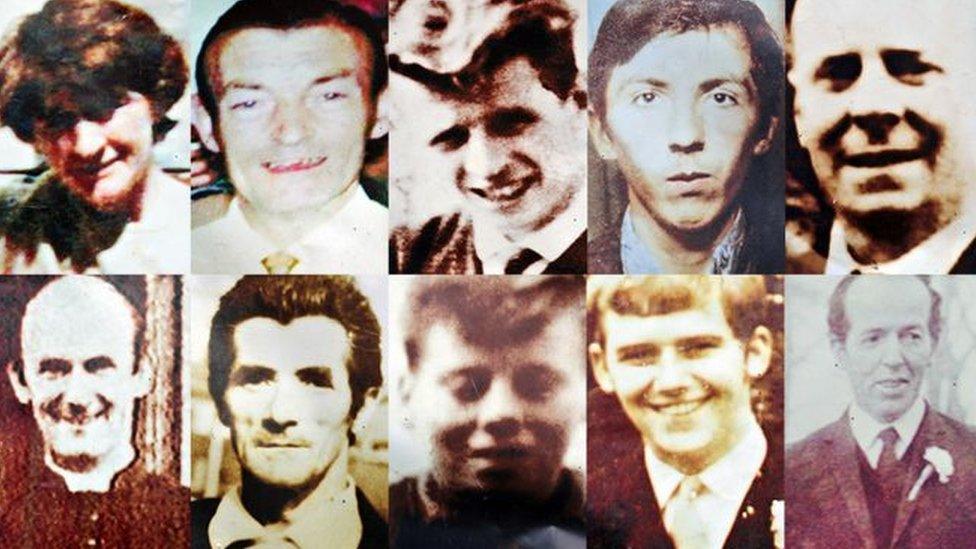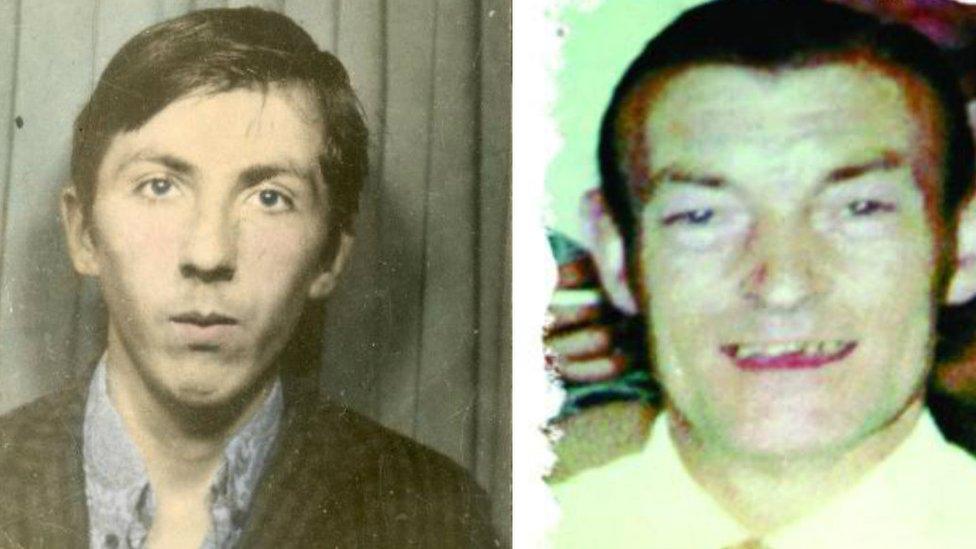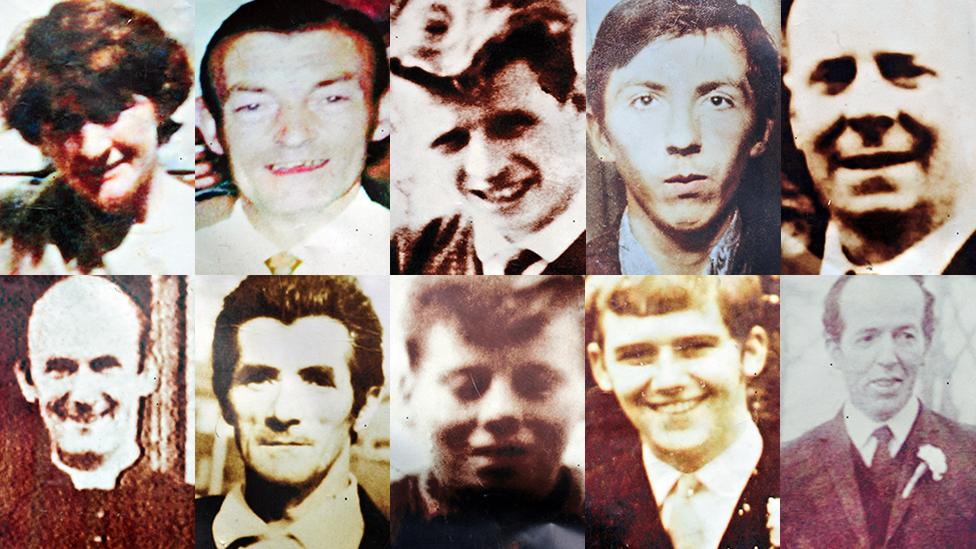Ballymurphy inquest: Witness denies arresting teenage brothers
- Published

An inquest is examining the deaths of 10 people killed in shootings at Ballymurphy in August 1971
A military witness at the Ballymurphy inquest into the deaths of 10 people in west Belfast in 1971 has denied arresting two teenage brothers who said they had been badly beaten by soldiers.
Witness M402 was a police sergeant with the 1st Battalion, the Parachute Regiment.
His name was on the report when the Doyle brothers were detained on the morning of 11 August 1971.
Robert and Bernard Doyle were 16 and 18 at the time.
The Doyles lived at 205 Whiterock Road, close to where the road met the countryside of Black Mountain.
The inquest is examining the remaining two of 10 deaths over a period of three days in August 1971, after internment was introduced.
The deaths under examination are that of John Laverty, who was 20, and Joseph Corr, who was 43.
They were fatally shot on the upper Whiterock Road near Dermott Hill Road early on the morning of 11 August.
Earlier this week, the Doyle brothers told the inquest that they were taken from their home, pushed up against an armoured vehicle, and badly beaten, as a wounded man lay dying near their front hedge.
On Friday, a barrister representing the family of John Laverty, asked M402 why his name was on the arrest form.
"I don't know," he said.
"It's not my writing and one of the numbers is wrong."
The barrister put it to him that either he was lying or had not remembered correctly, or the form was fabricated.
M402 said he would have remembered the brothers and he could not explain how his name appeared on the form.
He told the coroner he had not seen any soldiers beating up civilians.
He described seeing two injured men - later identified as Mr Laverty and Mr Corr - lying on the ground.
The witness said it looked as though both had been shot in the torso.
"I knew the one nearest to me was alive because I spoke to him," M402 said.
"They would have been with the medics. They were being treated and waiting for a military ambulance."
One was wearing a fawn coloured suit, the other wore a grey suit, he added.
"I recall thinking they did not look like 'big guys'."

Evidence in the inquest's latest phase relates to the deaths of John Laverty and Joseph Corr
Earlier, a former sergeant in the Royal Army Medical Corps, with the cipher M380, told the coroner that he had helped another soldier take a photograph of the men.
He said he held Mr Laverty's head in position. Mr Laverty was already dead, having died before the ambulance arrived.
Michael Mansfield QC, representing the family of Joseph Corr, said those photographs had not been made available to the inquest.
In other evidence, M368, a former radio operator for 1 Para 'C' company, told the coroner how his patrol had come across two bodies in the road.
He said one of the bodies was obviously dead.
The other man must have been alive, he said, because other medics were working on him.
M368 said he set up a radio post on the other side of the road.
He said he did not make any requests for medical help, or an ambulance.
He told the court he did not know who had done that.
The inquest continues next week.
- Published11 May 2021

- Published23 May 2019

- Published22 May 2019

- Published21 May 2019

- Published20 May 2019
